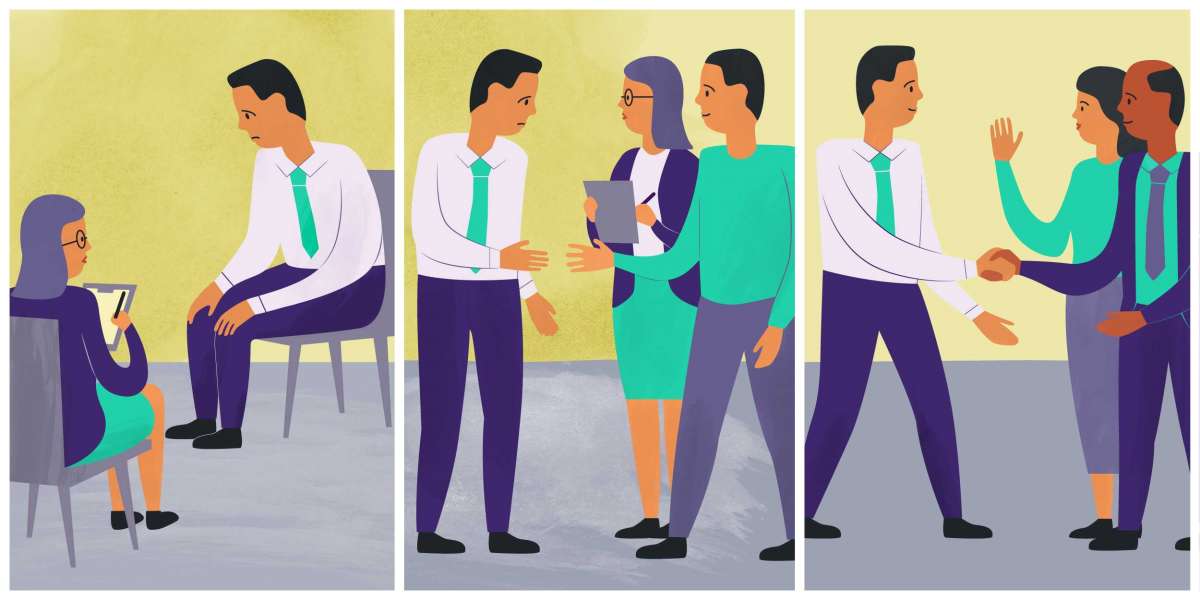Cognitive behavioral therapy has been well-studied and shown to be an effective treatment for many mental health and addiction issues. It focuses on the connection between thoughts, feelings and actions. It also teaches new, healthier ways of dealing with painful emotions.
It can help you identify your thinking and behaviour patterns that maintain your addiction. Using motivational interviewing, holistic approaches, and medication management, CBT can help you achieve long-term recovery.
Cognitive-behavioral therapy (CBT) is a type of therapy that focuses on changing your thoughts and behaviours.
Cognitive behavioral therapy teaches people to identify negative thought patterns and beliefs that contribute to their substance or behavioural addictions. It also helps them learn to predict problems and cope with them in healthy ways. This can help prevent relapse by preventing cravings and feelings that trigger the use of drugs or alcohol.
CBT is often used in combination with other treatments, such as medication. It is based on the principle that healthy thoughts lead to healthy behaviours and emotions. It teaches people how to recognize distorted thinking and reevaluate their automatic beliefs using new perspectives considering reality.
Therapists working with CBT believe that the goal of treatment is to train clients to become their own therapists. This is achieved through exercises in sessions and by practicing coping skills outside of therapy. This includes learning how to deal with triggers and avoiding drug or alcohol use in stressful situations. It also involves identifying co-occurring mental health disorders and addressing them with treatment.
It is a form of psychotherapy.
Cognitive-behavioral therapy is a type of psychotherapy that can be used to treat substance abuse and behavioural addictions. It focuses on changing the negative thoughts and beliefs that are associated with these behaviours. It also teaches coping skills to help people deal with stress and other problems. CBT can be used alone or with other treatments, such as medication.
A therapist will begin by identifying your destructive thought patterns. They will then come up with a treatment plan to change them. This may include examining your past experiences, and determining what triggers you to use drugs or alcohol.
Your therapist will also teach you coping skills to avoid drug or alcohol use. They may suggest that you attend support groups, such as AA or NA. They might also recommend that you take up a holistic approach, and/or work on any co-occurring mental health disorders. Your GP may be able to refer you for CBT through the NHS.
It is a form of counseling.
Cognitive behavioral therapy is a form of counseling that can help individuals with addictions to drugs or alcohol. It focuses on identifying the beliefs and thought patterns that lead to drug use. It also helps individuals find healthy ways to cope with stress and negative emotions without using drugs or alcohol. It is also a good choice for people with co-occurring disorders, which are mental health conditions that occur at the same time as addiction.
CBT is a widely used treatment approach for a variety of disorders. It is based on the theory that addictions and other behavioural problems stem from a series of dysfunctional and deeply-ingrained thought processes. These thoughts, called cognitive distortions or automatic thoughts, exacerbate addictive behaviour and intensify emotional distress.
A CBT therapist will first gather information about the client and assess their motivation for change. They will then work with the client to identify their problematic thoughts and behaviors and learn how to change them. This will lead to a more sustainable recovery and decrease the chances of relapse.
It is a form of group therapy.
CBT is a form of group therapy that can be administered to patients with different conditions. Its goal is to help patients develop coping skills and learn how to manage their addictions. It also helps people understand how their negative thoughts and beliefs can lead to addictive behaviours. In addition, it can also provide hope to other people suffering from the same disorder.
The therapists who administer CBT use many tools to assess the progress of their clients, including activity diaries and identifying triggers. It is important to find a therapist who is a good fit for you. It can be hard to open up about your feelings, but it is essential to get the most out of your treatment. Once you have identified your destructive thought patterns, you can begin to replace them with healthy ones. This will help you stay sober and avoid relapse. CBT can also be used to treat co-occurring disorders, which are mental health issues that occur in conjunction with substance abuse.







